Ultimate Guide to Home Solar Power Systems
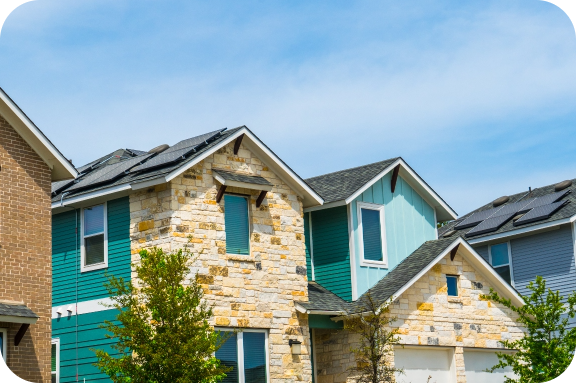
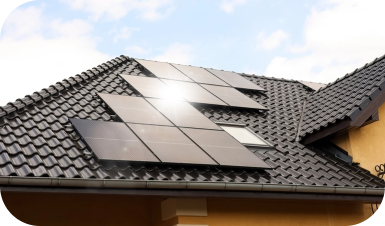
If you are a homeowner that is just starting to explore home solar, this is the ultimate guide to getting started on your solar journey. Are solar power systems worth it where you live? The answer depends on several factors, such as the average price of your utility bills, possible tax incentives in your area, and your home’s location. But as electricity costs rise, solar power systems could be a wise investment for many homeowners.
In this guide to solar power systems for your home, you’ll learn how solar power systems work and whether they could save you money.
How Does Home Solar Work?
This is the first and most important question to understand when you are starting to explore solar for your home. In most cases in the United States, rooftop solar panels are used as a replacement for all or a portion of a home’s electricity usage.
During the day, the photovoltaic panels produce electricity from the sun’s radiation. That electricity is used in the home in exactly the same way as traditional grid electricity is used. Any excess electricity that was produced by the system during the day is counted as a credit by the utility company and redeemed when the system is not producing power, such as at night or on a particularly cloudy day.
This system of crediting is typically referred to as Net Energy Metering (NEM), although the exact nomenclature and policy varies by region. With net metering, solar customers can potentially offset all of their annual electricity usage with solar even when actual solar production from their system varies by the season.
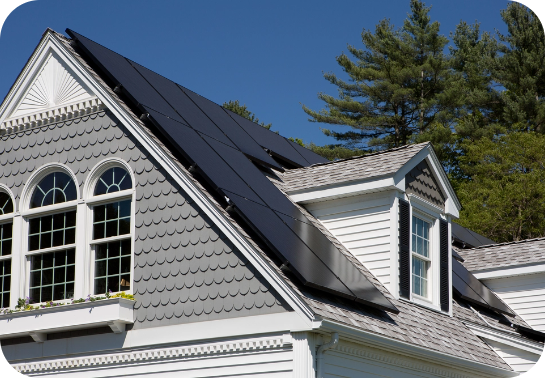
Why do Homeowners Install Solar?
The most common reason homeowners install solar power systems is to save money on their electricity bills over the long term. Other common motivations are to power battery storage as a source of emergency backup power in the event of a power outage and to reduce their reliance on fossil fuels.
Electricity Bill Savings
When used as a replacement for grid power that has historically increased in price over time, there is the potential to save thousands of dollars over the lifetime of a solar system.
Automatic Backup Power
When a solar system is paired with battery storage, it has the ability to provide automatic battery backup in the event of a power outage.
Reduced Carbon Footprint
With home solar power generated directly from the sun’s radiation, it powers the home as a renewable alternative to grid power which can come from fossil fuels.
How Much Do Solar Power Systems Cost?
According to the Center for Sustainable Energy, consumers can expect to pay between $15,000 and $25,000 for a solar panel system and installation. In 2022, the average cost1 was between $12,390 and $15,960, thanks to the Federal Solar Investment Tax Credit, which now covers 30% of solar system installation costs.
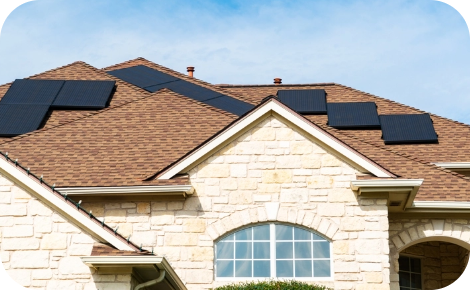
$12,390 and $15,960.
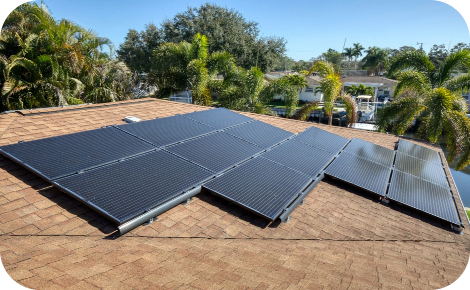
However, the cost of a home solar system can also vary significantly based on your home and where you live. For example, states like Arizona, New Mexico, and Nevada receive some of the highest sunshine levels in the country. When exposed to significant amounts of sunlight, such as in these states, solar panels can work very effectively, meaning they generate more energy and help you save more on energy bills. Solar panels still work in cloudy locations, but more sunlight means more energy.
Other factors to consider when calculating the cost of solar panels on your home include government incentives, how much energy you typically use, and more.
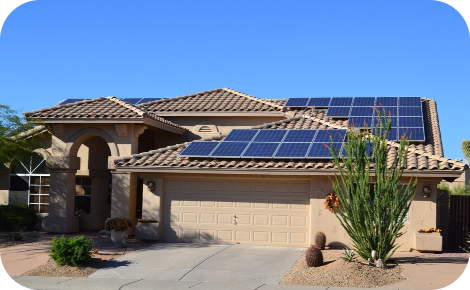
Is Installing Solar Panels On My House A Good Investment?
Electricity costs are different in each state, but generally, you can expect to benefit from solar energy if you have high energy bills. As solar power systems generate power independently, the greater your energy bill, the more likely you will benefit from investing in solar energy.
However, it’s important to know that it may take some time for your solar power system to “pay for itself” and to see a significant return on your investment. It can take years to offset the cost of solar panel systems and installation completely, but you will most likely begin seeing the difference solar panels make on your utility bills at once.
In addition to the cost factor, installing solar panels on your home is also an investment in eco-friendly energy sources. Solar panels do not produce greenhouse gasses or air pollutants like fossil fuels. If sustainability is important to you and your family, solar panels can be an excellent investment for future energy usage and can significantly lessen your carbon footprint.
Most home solar providers give homeowners the option to utilize solar panel loans and financing to finance their solar system and battery purchase.
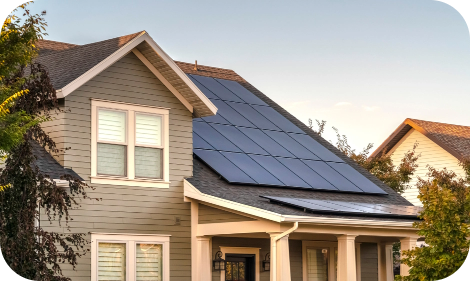
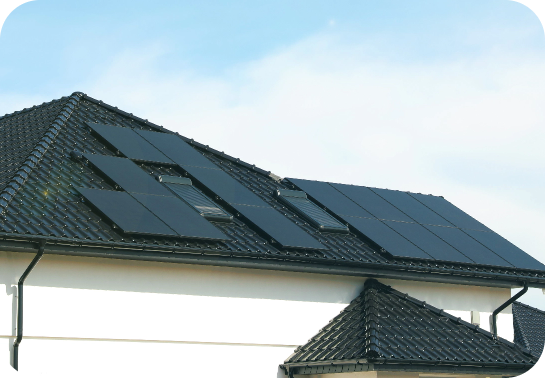
Do Solar Power Systems Work When the Power Goes Out?
When your electricity goes out due to extreme weather or high demand, your solar panel system will also go out. That’s because solar panel systems are not only connected to the electric power grid like other parts of your home, they also feed electricity back into it. This poses a potential safety hazard for utility workers in an outage as power lines that are presumed to be dead, could actually be live with electricity. So, once the electric grid loses power, home solar panel systems do as well.
However, there is a solution to power outages when using solar energy. Home solar systems that include battery storage can keep your solar panel system generating power in an outage. In these cases, the battery serves as a buffer between the system and the grid. This not only keeps the solar system operational but it also can provide backup power to your home during an outage event.
What Are Solar Batteries, And How Much Do They Cost?
A solar battery is a device added to your solar power systems that collects and stores excess solar energy your system generates. That stored energy can power your home during power outages or even when it’s dark or cloudy outside. Solar batteries are a reliable, sustainable way to ensure your home runs smoothly in the event of an emergency.
The cost of a solar battery varies depending on the size of your home, the amount of energy you consume regularly, and the type of solar battery you choose. Common types of solar batteries include lead-acid, lithium-ion, and lithium-ion-phosphate batteries.
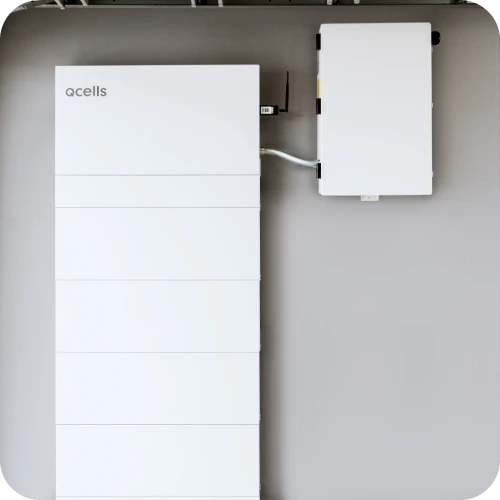
Lead-Acid Batteries
Lead-acid batteries have been on the market longer and are thus more affordable than other types. However, they may require more maintenance.
Lithium-Ion Batteries
Lithium-ion batteries are newer to the market and are more expensive but require little maintenance.
Lithium-Ion-Phosphate Batteries
Lithium-ion-phosphate batteries are very new and have the highest cost of solar battery types, but they have a long shelf-life and require little maintenance.
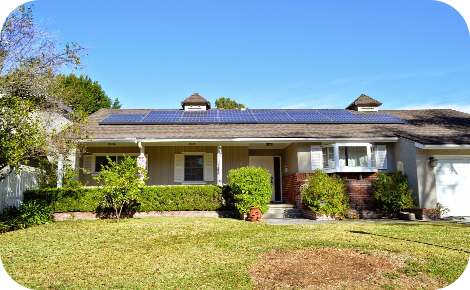
$300 to $20,000.
The cost of your solar battery system will also depend on how much energy you use. If you use a high amount, you need a larger battery system. A smaller battery system may be ideal if you use a smaller amount of energy.
Depending on your specific needs, the type of battery and battery system you choose, and many other factors, solar battery costs can range from $300 to $20,000, with an average cost of around $10,0002. Your state may also offer incentives and tax rebates, which could reduce costs.
Get to Know Axia by Qcells
We’re bringing homeowners across America a better way to go solar with complete home energy solutions and a seamless experience every step of the way.
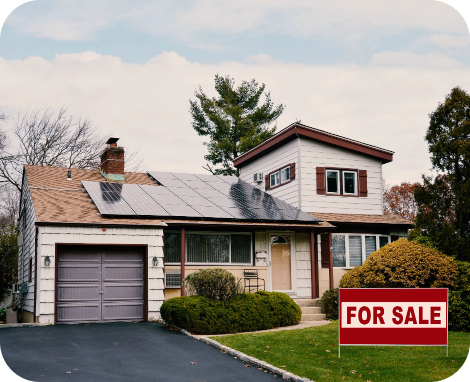
Do Solar Panels Increase Home Value?
Solar panels could increase your home’s value depending on where you live, the type of home you have, and the type of solar panel system you install. But if you’re looking to sell your home in the near future, it’s worth looking into how solar power systems can increase your property value. According to research from Zillow, homes with solar panels can sell for an average of 4.1% more than similar homes without solar panels.
How to Install Solar Panels
When it comes to installing solar panels, homeowners typically have two options: DIY or professional installation.
Doing the installation yourself can seem appealing, as it could save you thousands on installation costs. But unless you are well-versed in solar, going at it alone could be more trouble than it’s worth. The installation process can be dangerous, and you would need to navigate the complex permitting system on your own. Some utility companies also only accept solar power systems that have been installed by professionals.
If you’re looking to invest in solar power for your home, professional installation is key to efficient performance and seeing a return on your investment. Solar technology is complicated, and investing in professional installation can be the difference between a properly functioning solar power system that saves you money and one that causes future headaches.
Solar panel installation professionals have extensive experience and training, meaning they thoroughly understand each element of your system. Installing a solar power system in your home is relatively simple, and the installation process can be completed in just a few days. However, permits and utility approvals can take months, or less time, depending on where you live.
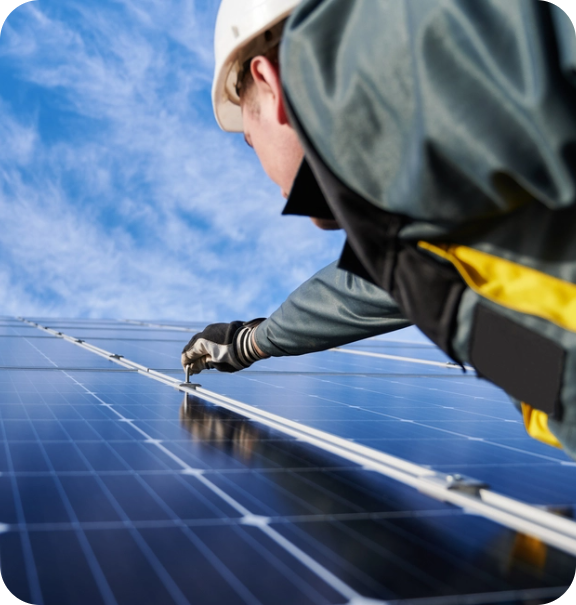
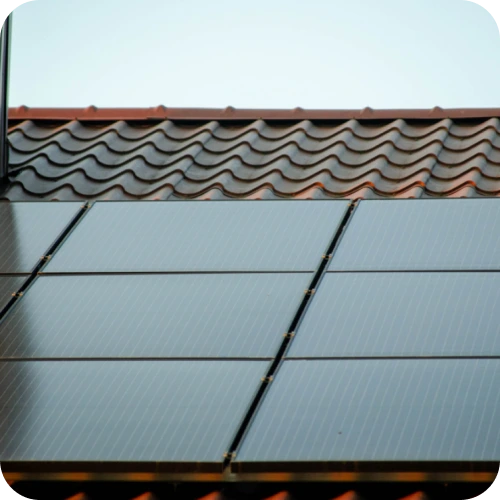
Choosing the Best Solar Panels for Your Home
There are a range of solar panel sizes and wattages that can be used to power your home. There are also alternatives to traditional panels such as solar shingles. With plenty of variables to consider, it is worth doing some research on panel options before you purchase.
The key factors that go into choosing the best panels for your home come down to cost, available roof space, efficiency and homeowner preferences related to aesthetics, warranties, performance and country of origin. When you are shopping for solar your installer will typically provide you with a consultation to help you make sure you wind up with the best panels for your home and budget.
Solar Panel Cleaning and Maintenance
Solar panels generally require limited maintenance over the course of the life of a system. On a day-to-day basis, solar systems turn on and off automatically when the sun rises and falls. That said, occasional panel cleaning and maintenance may be required if you notice your system is not producing as much electricity as expected.
Solar panel cleaning typically involves rinsing off panels with water to clear them of dust and debris. Depending on where you live, panels may stay clean enough to produce at their peak through natural precipitation. If you live in a particularly dry or dusty area, you can either rinse panels off with a hose from the ground or hire a professional panel cleaning service to complete the task.
Solar system maintenance is often completed by the solar provider who installed the system or the equipment warrantor. Various factors can impact system production and may require attention. Those include equipment degradation, interference from animals, and the growth of surrounding trees. You can learn more about what to expect in our panel maintenance guide.
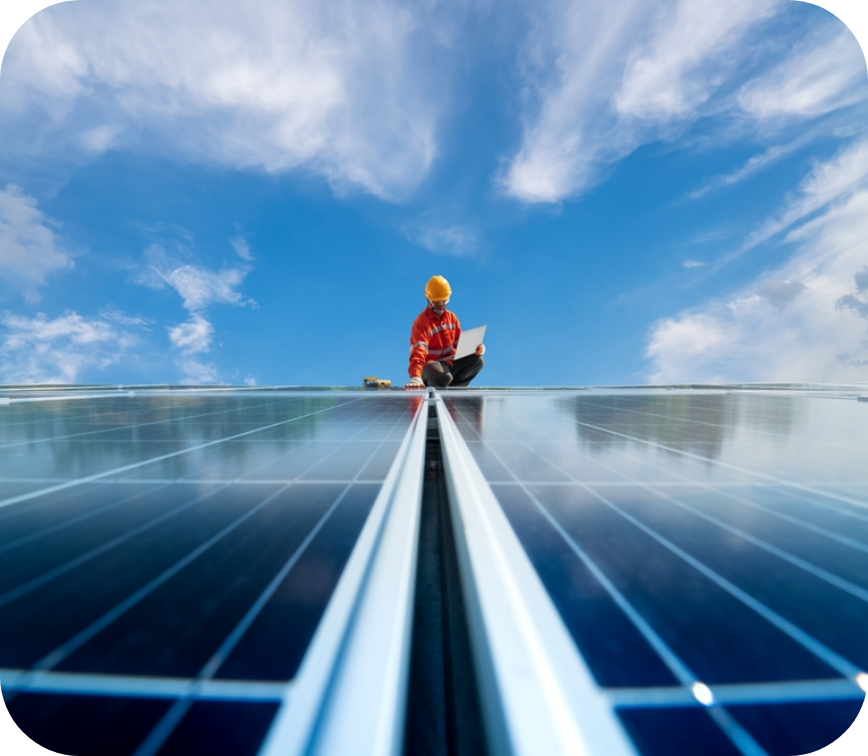
Ready to Electrify Your Life?
Isn’t it amazing what simple sunlight can do? We think so — and that’s why our mission is to help as many people as possible discover the empowerment behind energy independence. If this article has inspired you to go solar, get in touch with us today to get a custom quote from an advisor. We’ve pledged to make the solar transition as seamless and simple as possible!
Learn More
Want to learn more about how solar works? Check out these related articles. Have a question you can’t find an answer to? Contact us or chat live with an expert today.
Related Articles

